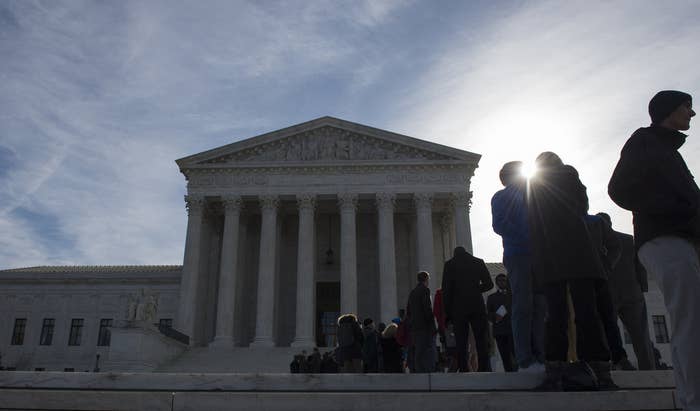
WASHINGTON — Police officers may not extend a completed traffic stop to conduct a dog sniff of the car without reasonable suspicion, the Supreme Court ruled on Tuesday.
Justice Ruth Bader Ginsburg, writing for a six-justice majority of the court, held that "a police stop exceeding the time needed to handle the matter for which the stop was made violates the Constitution's shield against unreasonable seizures."
Dennys Rodriguez had been stopped for veering onto the shoulder of the highway in March 2012. After being pulled over, questioned, had a records check completed, and issued a warning ticket, the officer asked for permission to walk his dog around Rodriguez's car. When he said no, the officer instructed Rodriguez to turn off his car and exit the vehicle. After a second officer arrived, the dog sniff was made and drugs were found.
Rodriguez argued that the drugs should not be allowed to be admitted as evidence in court because the drugs were only found after the traffic stop had been prolonged without reasonable suspicion to conduct the dog sniff.
"A traffic stop prolonged beyond" the time needed to deal with an alleged traffic violation is "unlawful," Ginsburg concluded — noting that the question is not even whether the dog sniff is conducted after a ticket is issued, but whether "conducting the sniff prolongs—i.e., adds time to—the stop."
Justice Clarence Thomas wrote a dissenting opinion, which Justices Anthony Kennedy and Samuel Alito joined, arguing that the Rodriguez stop was "reasonably executed" Thomas, writing only for himself and Alito, also added that, regardless, the officer "had reasonable suspicion to continue to hold him for investigative purposes."
To that final point, Ginsburg noted that the magistrate judge in the case had found that there was no "individualized suspicion" that would support detaining Rodriguez for the dog sniff, a position the district court adopted and the court of appeals did not review.
